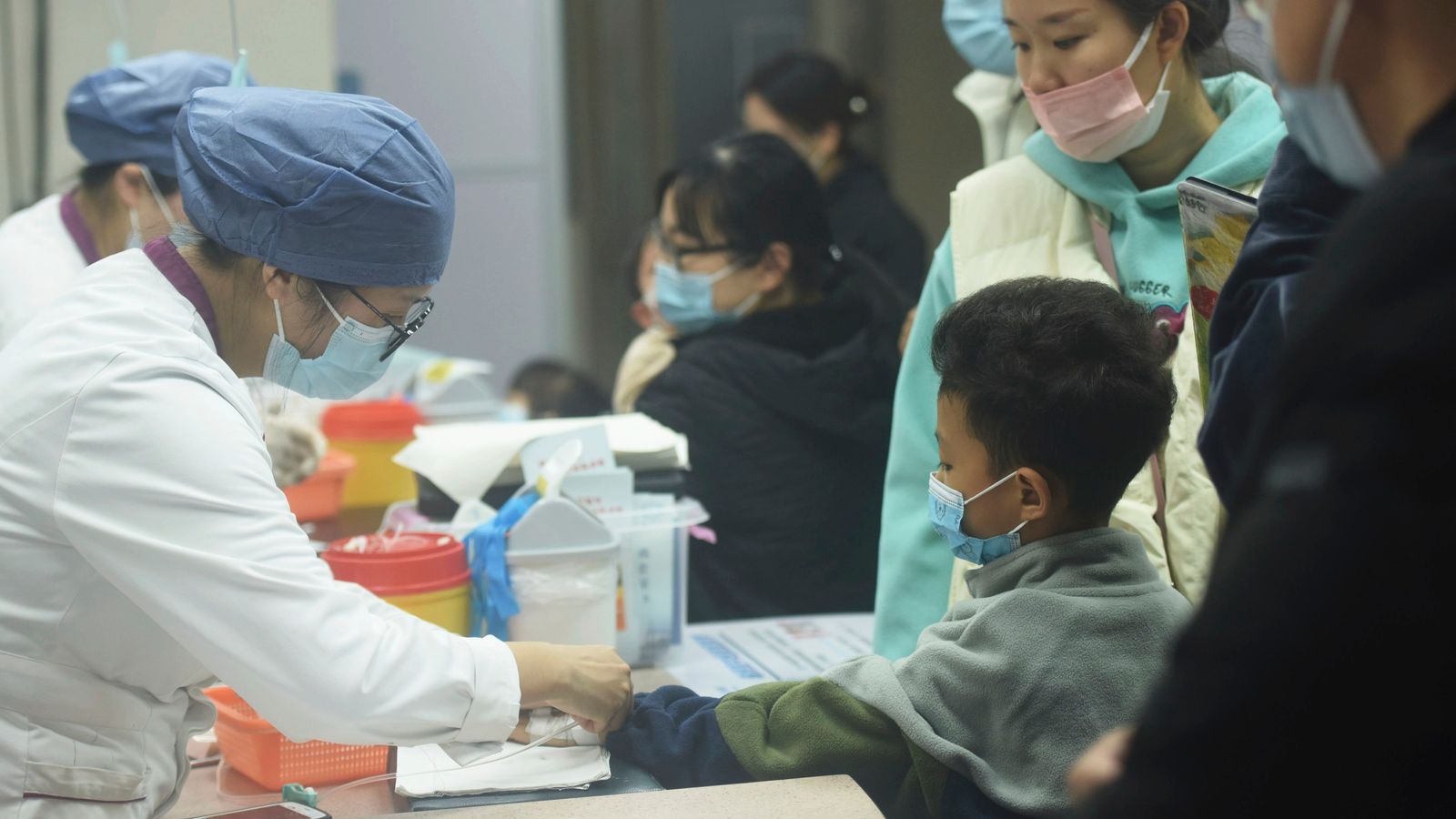China has said its outbreak of a respiratory illness stems from the flu and other known pathogens – while questions about its origins rise.
A spokesperson from China’s National Health Commission said clusters of respiratory infections across the country are caused by an overlap of common viruses.
They cited the influenza virus, rhinoviruses, the respiratory syncytial virus, or RSV, the adenovirus as well as bacteria such as mycoplasma pneumoniae as the culprits.
In response, the ministry called for more fever clinics and vaccinations for children and the elderly.
Ministry spokesman Mi Feng also said: “Efforts should be made to increase the opening of relevant clinics and treatment areas, extend service hours and increase the supply of medicines.”
The statements come after a Beijing children’s hospital earlier told state media CCTV that at least 7,000 patients were being admitted daily to the institution, exceeding capacity.
And last week, the largest paediatric hospital in nearby Tianjin reportedly received more than 13,000 children at its outpatient and emergency departments.
South China Sea: Accusations traded after Beijing ‘warns away’ US destroyer from disputed waters
China pneumonia: Everything we know about new outbreak of respiratory illness
WHO seeks answers from China about mystery outbreak of respiratory illness
The World Health Organisation formally requested information on the outbreak from China earlier this week, describing the rare request as a “routine” check.
On Thursday, Chinese health officials carried out a teleconference with the WHO, providing data that showed an increase in hospital admissions of children due to diseases commonly seen in the autumn since October.
The WHO added Chinese officials maintained the spike in infections had not overloaded the country’s hospitals, and explained they made the request via an international legal mechanism.
Read more from Sky News:
Everything we know about new outbreak of respiratory illness
Former officer who murdered George Floyd ‘expected to survive’
Despite the information, the group also said there was too little data to assess the risk of the reported cases.
Chinese health authorities later said they found no “unusual or novel diseases”.
They added they believe the rising infections are also linked to the country’s first full cold season after strict Covid restrictions were lifted last December.
Three years on from when the cases were first detected in the central Chinese city of Wuhan in the latter months of 2019 – there is still debate about the origins of the coronavirus outbreak.
Writing on X, formerly Twitter, Dr Krutika Kuppalli, who is part of the WHO’s emergency programme, said the outbreaks “really could be anything”.
She warned against jumping to conclusions, saying: “The point is we need information.”






